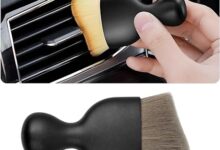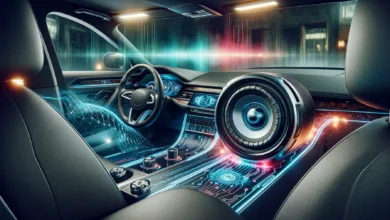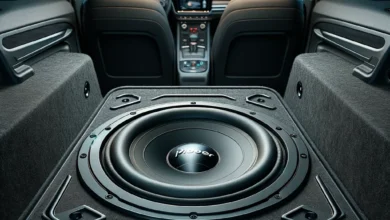Why Does My Car Smell Like Ammonia? Unveiling the Mystery

Have you ever stepped into your car, expecting the usual, and been hit by an overwhelming ammonia smell instead? It’s an unpleasant surprise, right? If you’re scratching your head and wondering why your car smells like a cleaning closet gone wrong, you’re not alone. Let’s dive into the reasons behind this mystery and figure out how to get rid of it.
Why Does My Car Smell Like Ammonia? Possible Causes of Ammonia Smell in Your Car
1. Leaking Coolant
One of the most common culprits behind that ammonia odor is a coolant leak. Coolant, or antifreeze, often contains ethylene glycol, which can give off an ammonia-like smell. When your car’s cooling system has a leak, this fluid can seep into places it shouldn’t be, causing that peculiar odor.
How to Check:
- Look for wet spots under your car, especially towards the front where the radiator sits.
- Check the coolant levels in your reservoir. If it’s lower than usual, you might have a leak.
2. Mold and Mildew Growth
Another likely reason for the ammonia smell is mold or mildew growing in your car’s air conditioning system. This can happen if there’s moisture buildup in the vents, which provides a perfect breeding ground for these unwanted guests.
How to Check:
- Turn on your AC and smell the air coming out. If it intensifies, mold could be the problem.
- Inspect the cabin air filter. If it’s damp or dirty, it’s a good idea to replace it.
3. Leaking Battery
Car batteries contain sulfuric acid, which can sometimes produce an ammonia-like smell if there’s a leak or the battery is overcharging. This is not just a smelly issue but also a potentially dangerous one.
How to Check:
- Inspect the battery for any visible leaks or corrosion around the terminals.
- If your battery is more than three years old, consider having it tested by a professional.
4. Spilled Chemicals
Sometimes, the simplest explanation is the correct one. Have you recently transported cleaning supplies, fertilizers, or any other chemicals? A spill could be the source of that ammonia smell.
How to Check:
- Look under the seats and in the trunk for any spilled containers or stains.
- Clean up any spills immediately and ventilate your car.
5. Worn-Out Heater Core
The heater core is another component that, when damaged, can cause a smell resembling ammonia. The heater core is part of the car’s cooling system, and a leak here can lead to coolant entering the cabin.
How to Check:
- Notice any fogging on the inside of your windows when the heater is on.
- Check for wetness under the dashboard on the passenger side.
Getting Rid of the Ammonia Smell
Once you’ve identified the source, it’s time to tackle the smell. Here are some steps you can take:
1. Fix the Source
Addressing the root cause is crucial. Whether it’s fixing a coolant leak, replacing a moldy air filter, or cleaning up a chemical spill, take the necessary actions to stop the smell at its source.
2. Ventilate Your Car
Open all the windows and doors to let fresh air circulate through your car. This can help dissipate any lingering odors.
3. Use Odor Eliminators
Consider using activated charcoal or baking soda, both of which are excellent at absorbing odors. Place a bowl of either substance in your car overnight to help neutralize the smell.
4. Deep Clean the Interior
A thorough cleaning can work wonders. Vacuum the carpets, wipe down the surfaces with a mixture of vinegar and water, and don’t forget to clean the upholstery. If the smell persists, a professional detailing service might be necessary.
Preventing Future Odors
To keep your car smelling fresh, here are a few tips:
- Regular Maintenance: Keep up with routine car maintenance to catch issues early.
- Clean Spills Immediately: Don’t let spills sit; clean them up as soon as they happen.
- Change Air Filters: Replace your cabin air filter regularly to prevent mold growth.
- Check for Leaks: Keep an eye on fluid levels and look for any signs of leaks under your car.
Wrapping Up
An ammonia smell in your car is more than just a nuisance—it can be a sign of underlying issues that need attention. By identifying the cause and taking steps to eliminate the odor, you can ensure a more pleasant driving experience. Remember, regular maintenance and a bit of vigilance can go a long way in keeping your car fresh and free from unwanted smells. If you ever feel stumped, don’t hesitate to consult a professional to get to the bottom of the problem. Happy driving!










